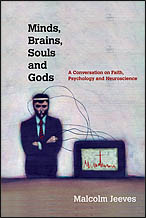
Preface
Robert Boyle, illustrious scientist and Fellow of the Royal Society, described how, while in Geneva on a continental holiday, he underwent a conversion from nominal, unthinking Christianity to committed Christianity. As a result of his experiences, he stressed the need for Christians to have what he called an “examined faith.” [1]
John Stott, discussing Paul’s letter to the Christians in Philippi, drew attention to the importance for all Christians to heed the apostle’s exhortation to “contend for the faith of the Gospel.” He continues, “This describes a combination of evangelism and apologetics, not only proclaiming the gospel, but also defending it and arguing for its truth.”[2]
Echoing the views of Robert Boyle and John Stott, Mark Noll says, “If what we claim about Jesus Christ is true, then evangelicals should be among the most active, most serious, and most open-minded advocates of general human learning.”
The New Testament accounts of the spread of the Christian gospel — the good news of God’s redeeming love in Jesus Christ — vividly illustrate how the gospel both warms the heart and engages the mind. These are not mutually exclusive but reciprocally reinforcing. As the love of God in Christ warms the heart and engages the emotions, it generates a desire to know more; as the mind is engaged in the voyage of discovery, the things learned warm the heart even more, and on it goes. Research findings in psychology and related subjects such as neuroscience produce fresh challenges for our generation to develop an “examined faith,” engaging both heart and mind.[3] — Malcolm Jeeves. Minds, Brains, Souls and Gods: A Conversation on Faith, Psychology and Neuroscience. InterVarsity Press, 2013, 7.
First Thoughts:
As you may remember from an Emerging Scholars Network Facebook Wall post last weekend, it has been hard for me to put down the new InterVarsity Press release Minds, Brains, Souls and Gods: A Conversation on Faith, Psychology and Neuroscience. In a hypothetical correspondence between Emeritus Professor of Psychology Malcolm Jeeves[4] and a first year psychology student seeking to understand the relationship between his field of study and his faith, Jeeves “argues that we must avoid false choices in the relation between Scripture and science.”
In addition to the compelling conversational approach to mentoring, it is encouraging to read a resource which truly delivers what the cover claims on such an important topic, i.e., “the way of integration”: “Christians need not choose between a ‘God of the gaps’ that competes with science, a ‘neurotheology’ that bases our understanding of God on the latest scientific theory, or a scientific reductionism that claims to have explained God away as a mere function of the brain.” Yes, “[s]tudents encountering the brave new world of neuroscience need not view such research as a threat to the faith.” To God be the glory!
So, consider this a teaser, additional material from and inspired by Minds, Brains, Souls and Gods in process. If you’re interested in reading, discussing, and possibly even reviewing Minds, Brains, Souls and Gods, please let me know.
- J.J. MacIntosh and Peter Anstey, “Robert Boyle,” in the Stanford Encyclopedia of Philosophy, Fall 2007 http://plato.Stanford.edu/archives/fall2007/entries/boyle. ↩
- John Stott, Through the Bible, Through the Year (Grand Rapids: Baker, 2006), p.370. ↩
- Mark Noll. Jesus Christ and the Life of the Mind (Grand Rapids: Eerdmans, 2011), p.x. ↩
- Bio from InterVarsity Press: Malcolm Jeeves (CBE, Hon. D.Sc., FRSE) is emeritus professor of psychology at the University of St. Andrews, where he established the department of psychology in 1969. He was formerly president of the Royal Society of Edinburgh and editor-in-chief of the journal,Neuropsychologia. He was made Commander of the Order of the British Empire in 1992 for his services to science and to psychology in Britain. He is the author most recently of Neuroscience, Psychology, and Religion: Illusions, Delusions, and Realities about Human Nature (with Warren S. Brown), published in 2009 by Templeton Press. ↩
Tom enjoys daily conversations regarding living out the Biblical Story with his wife Theresa and their four girls, around the block, at Elizabethtown Brethren in Christ Church (where he teaches adult electives and co-leads a small group), among healthcare professionals as the Northeast Regional Director for the Christian Medical & Dental Associations (CMDA), and in higher ed as a volunteer with the Emerging Scholars Network (ESN). For a number of years, the Christian Medical Society / CMDA at Penn State College of Medicine was the hub of his ministry with CMDA. Note: Tom served with InterVarsity Christian Fellowship / USA for 20+ years, including 6+ years as the Associate Director of ESN. He has written for the ESN blog from its launch in August 2008. He has studied Biology (B.S.), Higher Education (M.A.), Spiritual Direction (Certificate), Spiritual Formation (M.A.R.), Ministry to Emerging Generations (D.Min.). To God be the glory!

Leave a Reply